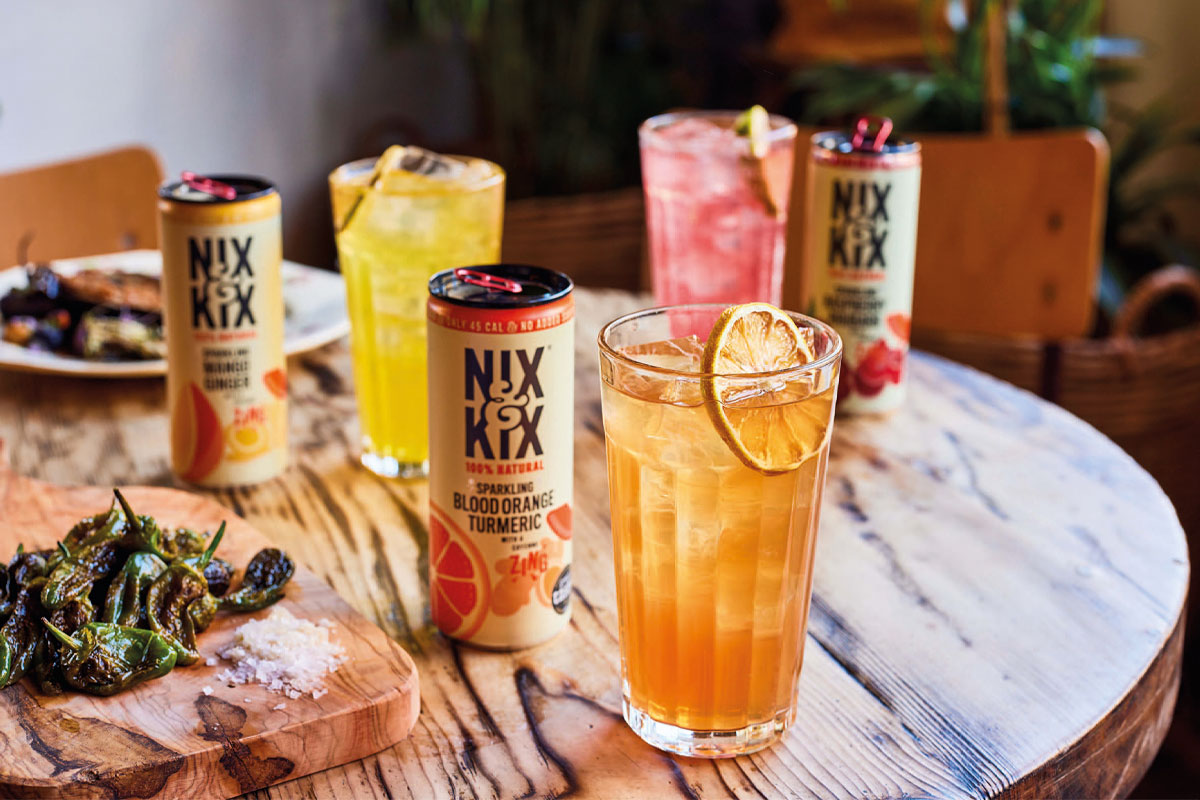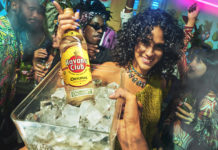Younger demographic driving huge innovation in low/no alcohol drinks

ACROSS the on-trade the soft drinks market is now outperforming all others – including wine, cider and beer.
The latest research into the burgeoning business of non-alcoholic beverages has found that ‘dry’ pub visits are more common than ever, with soft drinks making up 25% of on-trade sales, generating value in the region of £4.6 billion, up 2.7% year-on-year.
But this rising tide may not lift all boats – the mainstream brands which have long dominated designated drivers’ nights out are now squarely in the sights of the sugar tax, and the field is wide open to soft drinks with ‘wellness’ credentials and ‘adult’ flavours.
‘A healthy future for soft drinks’ is the latest report from Can Makers, the trade body representing UK drinks can manufacturers, where chairman Simon Gresty hailed the current atmosphere of ‘vibrant innovation’ in the soft drinks sector.
“An increasingly high percentage of consumers are actively reducing their alcohol consumption and the trend is mirrored in the on-trade, where research shows that 29% of adult pub visits today are ‘dry’,” he said.
“The fact is that people still want to socialise and enjoy a great tasting drink, just not necessarily an alcoholic one. We are seeing many brands striving to create a premium position in the market to differentiate more effectively.”
Gresty added that the change was largely being driven by younger consumers, more than a quarter of whom are now teetotal. It was, he said, a marketing opportunity which must now sit alongside environmental sustainability in the game-plan of every aspirant brand.
Riding on the crest of this soft drink tsunami, the energy drink market is becoming increasingly sophisticated, replacing the oomph of plain old glucose and caffeine with ingredients that can be presented as more refined antidotes to tiredness.
Tenzing is one such brand deliberately positioning away from the sector’s pioneers. Founder Huib van Bockel knows the territory well, having launched Tenzing after a career in marketing at Red Bull UK.
Huib maintains that mainstream energy and soft drinks are bound into out-dated formulations: “We know so much more about nutrition now. We just approached it in the simplest way. We found a respectable doctor specialised in sports nutrition and asked, if we were to create the best possible energising drink now, what ingredients would it have?”
More concerned with health than energy, Nix & Kix comes to market as ‘all-natural, low calorie, no added sugar and vegan’.
The brand focuses on cayenne as an ingredient to add a zing of flavour and a health-giving proposition.
Co-founder Kerstin Robinson said: “Cayenne helps to boost your metabolism and has also been proven to increase endorphin levels in the body, which is the hormone that makes you feel happy.”
Fellow Nix and Kix founder, Julia Kessler, explained: “Whenever we went out with the purpose of not drinking, we ended up drinking something like white wine spritzer, because for us it was healthier than any of the options available.
“When you don’t want to drink you don’t want to have something like cranberry juice, you want something which is still cool and exciting. We were determined to find a non-alcoholic alternative that was healthy but still excited the taste buds.”
Paddy Cavanagh-Butler, founder of premium adult soft drink company, Punchy, was more blunt: “The soft drinks category is still dominated by mass-market commodity brands that contain ingredients that are bad for you and packaged in materials that are bad for the environment.
“Brands will have to innovate or get left behind. There are also many more brands entering the market and, inevitably, there can only be so many winners and losers. Strap yourself in!”




















